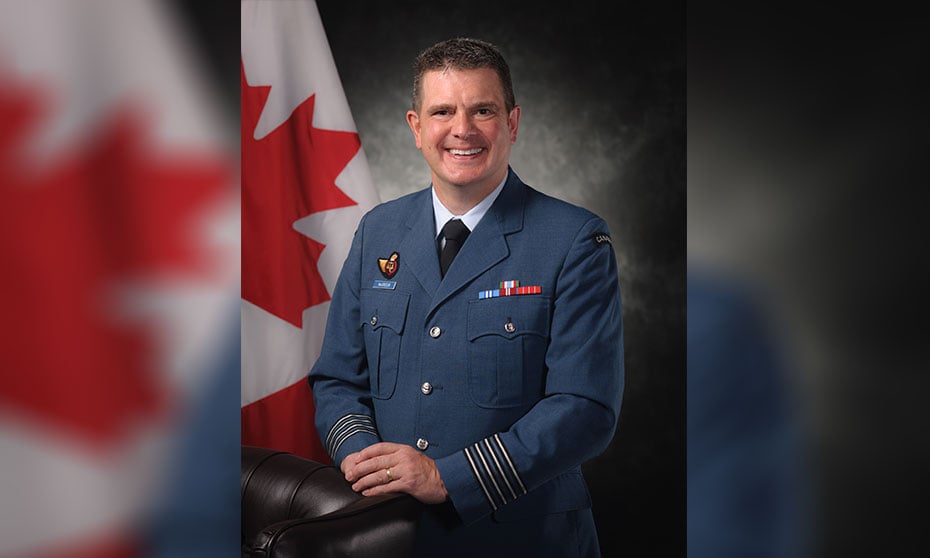
Professional investors may not be so excited about bullion-backed ETFs

Military members charged with civilian offences do not have the right to be tried by a jury if they have been tried in military courts, the Supreme Court of Canada ruled on Friday.
The appeals in R. v. Stillman concerned whether Master Cpl. Clarence Stillman and seven other current and former members of the military forces who had been charged with offences under civilian law had their constitutional rights infringed because they were denied jury trials.
In 2017 the Court Martial Appeal Court rejected their challenge; in Friday’s 5-2 decision, the Supreme Court agreed that the military exception under s. 11(f) of the Charter applies.
Friday’s decision from the Supreme Court “buoyed my view of the perception of the military justice system,” and demonstrated pride in how the system works, said Col. Bruce MacGregor, Director, Military Prosecutions for National Defence Canada, and counsel to the Crown in this case.
The accused were charged with one or more service offences — meaning crimes under a federal law such as the Criminal Code — under s. 130(1) (a) of the National Defence Act. This section provides that, for service member trials for civil offences, “[a]n act or omission … that takes place in Canada and is punishable under Part VII, the Criminal Code or any other Act of Parliament, … is an offence under this Division and every person convicted thereof is liable to suffer punishment as provided in subsection (2).”
Before various standing courts martial, all but one of the accused unsuccessfully asserted his right to a trial by jury under s. 11 (f) of the Charter, which guarantees that “except in the case of an offence under military law tried before a military tribunal, to the benefit of trial by jury where the maximum punishment for the offence is imprisonment for five years or a more severe punishment.”
The service members maintained that the military exception found in that provision was not engaged in their circumstances, and claimed that since s. 130(1)(a) brought them within the military justice system, which does not provide for a trial by jury, it was inconsistent with their s. 11(f) right.
Appeals to the Court Martial Appeal Court resulted in two conflicting judgments: the appeal in R. v. Déry, 2017 CMAC 2, 391 C.R.R. (2d) 156, was dismissed, while the appeal in R. v. Beaudry, 2018 CMAC 4, 430 D.L.R. (4th) 557 was allowed, and resulted in a declaration that s. 130(1) (a) is inconsistent with s. 11 (f) of the Charter.
“It’s an extremely thorough decision,” in which the court goes through the history of the military justice system, MacGregor says. “It’s a great explanation of how we got here, the dynamic nature of the military justice system, which has evolved from one that was purely disciplinary to one with procedural fairness built in.
There are sound reasons why the military legal system has opted for to try service members by panels of its peers, MacGregor says, which the court recognized. “Members tried by members fosters morale in the military. What these panel members bring in are experience in the environment within which the Code of Service Discipline takes place.”
This decision goes further from what previous Supreme Court decisions have said about these panels, he says, “which is very accurate” regarding how the military community feels about the court martial panel.
In Friday’s decision, the majority of the Supreme Court agreed that “the concept of ‘members tried by members’ fosters morale within the military … even where the underlying offence is an ordinary civil offence contained in the Criminal Code,” Justices Michael Moldaver and Russell Brown wrote in joint reasons, with Chief Justice Richard Wagner and Justices Rosalie Abella and Suzanne Côté concurring.
The court also noted that the military justice system had evolved over the years, and that “military law, and the place of the military in the society in which it operates more generally, have changed a great deal since the 17th century [and the Mutiny Act of 1689], and there is no reason to believe that the Constitution left the scope of military law frozen as it was in 1689.”
In joint dissenting reasons, Justices Andromache Karakatsanis and Malcolm Rowe found that “s. 130(1) (a) of the NDA does not comply with s. 11 (f) of the Charter to the extent that it denies service members the right to a jury trial for serious offences that do not have a military connection. Because striking down the legislative provision (as the accused persons request) would limit the trial of offences by military courts more than the Charter exception demands, we would read in a military connection requirement to s. 130(1) (a) to respect s. 11 (f) of the Charter.”
The majority also set out that the sentencing principles of the military justice system brought in with Bill C-15 in 2018 as “an important reflection of the purpose of the military justice system, which should be factored into a contemplation of how our system works,” MacGregor told Legal Feeds.
“[W]ere serious civil offences committed by persons subject to the CSD to be streamed into the civilian justice system, sentencing decisions in those cases might not truly account for the seriousness of such offences, seen in light of the purposes of discipline, efficiency, and morale,” the majority found.